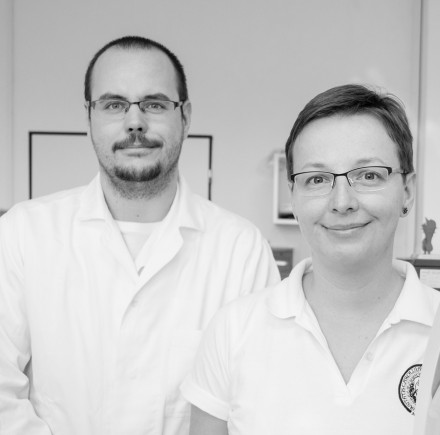M. Krutova, A. Kalova, E. Nycova, T. Gelbicova, R. Karpiskova, E. Smelikova, O. Nyc, P. Drevinek, J. Tkadlec. Travel Medicine and Infectious Disease. Jan-Feb 2021;39:101914. doi: 10.1016/j.tmaid.2020.101914. Epub 2020 Nov 13. IF: 6.211

Mgr. Marcela Krůtová, Ph.D., Department of Paediatrics
Mgr. Jan Tkadlec, Ph.D., Department of Medical Microbiology
Abstract
Background: Travellers were recognized as a risk cohort that can be colonized by mcr-1-mediated colistin-resistant Enterobacteriaceae. We aimed to investigate the carriage of mcr-mediated colistin resistance in Enterobacteriaceae in Czech travellers or expatriates residing temporarily in the Czech Republic.
Methods: Between August 2018 and September 2019, the stool samples were cultured in enrichment broth. The enriched cultures were tested for the presence of the mcr-1-8 genes and inoculated onto selective agar with colistin. Colistin-resistant Enterobacteriaceae were tested for the presence of the mcr-1-8 genes; the mcr-positive isolates were characterised by whole genome sequencing.
Results: From the 177 stool samples, 15 colistin-resistant Enterobacteriaceae isolates were cultured (7.9%); two of the E. coli isolates carried the mcr-1 gene (1.1%). In the E. coli multilocus sequence type (ST) 156, the mcr-1 gene was located in an ISApl1-mcr-1-orf-ISApl1 (Tn6330) and incorporated into the chromosome; in the E. coli ST23 isolate, the mcr-1 gene was harboured by the plasmid IncX4. Both of the mcr-1 positive E. coli isolates were multidrug-resistant and one isolate was an extended-spectrum β-lactamase producer (blaCTX-M-27).
Conclusion: Patients with an international travel history should be monitored for the carriage of the mcr-1 gene in order to prevent its dissemination into healthcare settings.